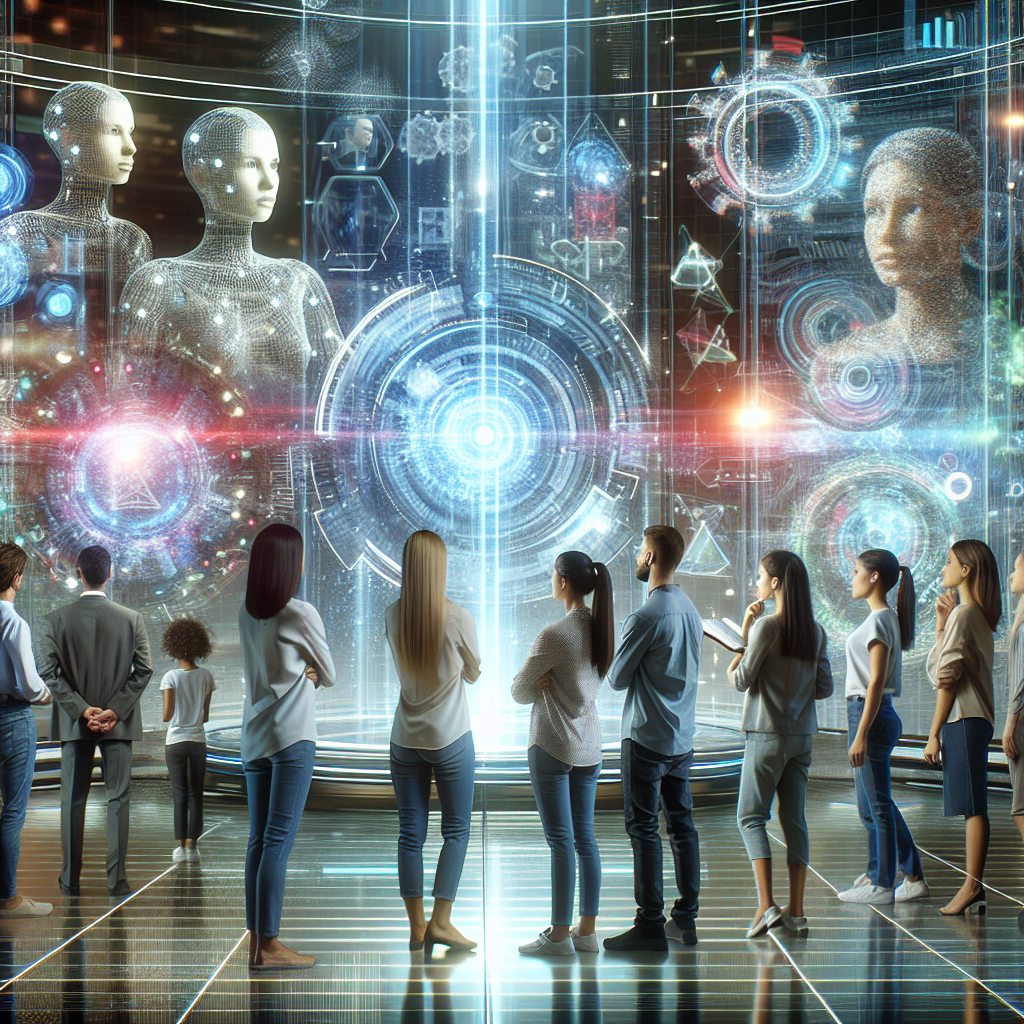As artificial intelligence (AI) increasingly integrates into various fields—from healthcare to finance and beyond—there’s a growing acknowledgment that the algorithms behind these systems represent just part of the picture. While AI offers the potential for enhanced efficiency and impartiality, concerns are rising regarding the human costs tied to AI decision-making. This discussion explores the ethical, psychological, and social ramifications of incorporating AI into crucial aspects of human life.
The Illusion of Objectivity
A primary attraction of AI is its supposed objectivity. Algorithms can sift through vast amounts of data without succumbing to many biases that often affect human choices. However, the reality is more complex. These algorithms are only as unbiased as the data they learn from. Historical datasets, which frequently mirror societal inequities, can lead to persistent biases in AI results.
For example, in recruitment processes, AI tools trained on previous employee data may unintentionally favor specific demographics, reinforcing cycles of discrimination. Companies like Amazon have encountered backlash after their AI hiring systems showed a preference for male candidates over female ones. This raises a vital question: if algorithms inherit human biases, can they truly be considered objective?
Psychological Impacts
The implementation of AI in decision-making can have significant psychological effects on those impacted by these systems. When individuals find themselves subject to algorithms, it can lead to feelings of helplessness or dehumanization. For instance, when applying for loans or insurance, AI-driven decisions can feel devoid of warmth. An automated rejection may trigger feelings of inadequacy or distress as the individual navigates an opaque system that lacks compassion.
Additionally, AI-driven decision-making can diminish trust in human institutions. When people feel they are at the mercy of algorithms, they may withdraw from systems they view as untrustworthy. This detachment can further alienate vulnerable communities already grappling with systemic disparities.
Ethical Considerations
The ethical ramifications of AI decision-making extend well beyond algorithmic bias. Fundamental questions about accountability arise. If an AI system makes a harmful decision, who is liable? The developers? The organization? Or the AI itself? This ambiguity can result in a lack of accountability, creating a legal gray area where victims of AI decisions may find no recourse.
Moreover, AI systems are often shrouded in secrecy. Many algorithms function as “black boxes,” rendering their decision-making processes inscrutable. This lack of clarity raises ethical concerns regarding informed consent. If individuals do not comprehend how their data is utilized or the reasoning behind certain decisions, can they genuinely consent to the system?
Societal Ramifications
The repercussions of AI decision-making reach beyond individual experiences; they resonate throughout society. The spread of AI technologies can intensify existing inequalities, particularly for marginalized groups. For instance, in the criminal justice system, AI tools used for risk assessment can disproportionately impact certain demographic groups, potentially leading to unjust sentencing.
Furthermore, the rise of AI in labor markets threatens job security for many. The automation of tasks traditionally performed by humans has sparked fears of widespread unemployment. The human toll encompasses not just financial instability, but also the psychological distress and loss of purpose associated with meaningful work.
A Path Forward
To alleviate the human costs of AI decision-making, a multifaceted strategy is essential. First, companies should prioritize ethical AI development by assembling diverse teams to create and evaluate algorithms. A collaborative approach can help ensure that the perspectives of affected communities are integrated into the design process.
Second, transparency must be a core principle of AI deployment. Stakeholders—including consumers and regulatory bodies—ought to have insight into how AI systems function and the data used for training. This transparency can cultivate trust and accountability.
Third, ongoing education about AI technologies and their implications is vital. Ensuring that individuals understand how AI influences their lives can empower them to engage critically with these systems, easing feelings of helplessness.
Conclusion
As we advance in an AI-driven world, it is crucial to remain acutely aware of the human costs tied to algorithmic decision-making. Emphasizing ethical considerations, promoting transparency, and fostering inclusivity are vital steps in using AI for the greater good. By doing so, we can transform technology from a potentially detrimental force into a tool that uplifts and empowers humanity, ensuring that no one is left behind in the pursuit of progress.

